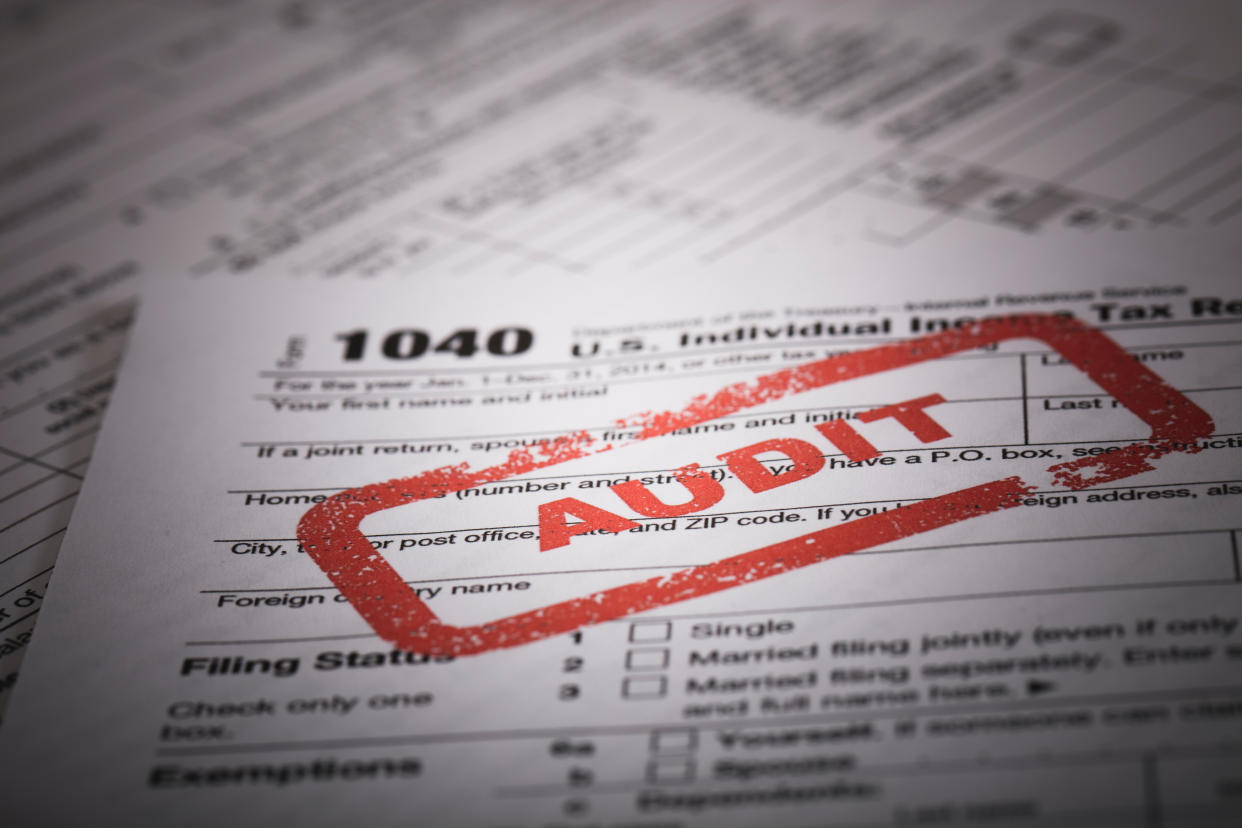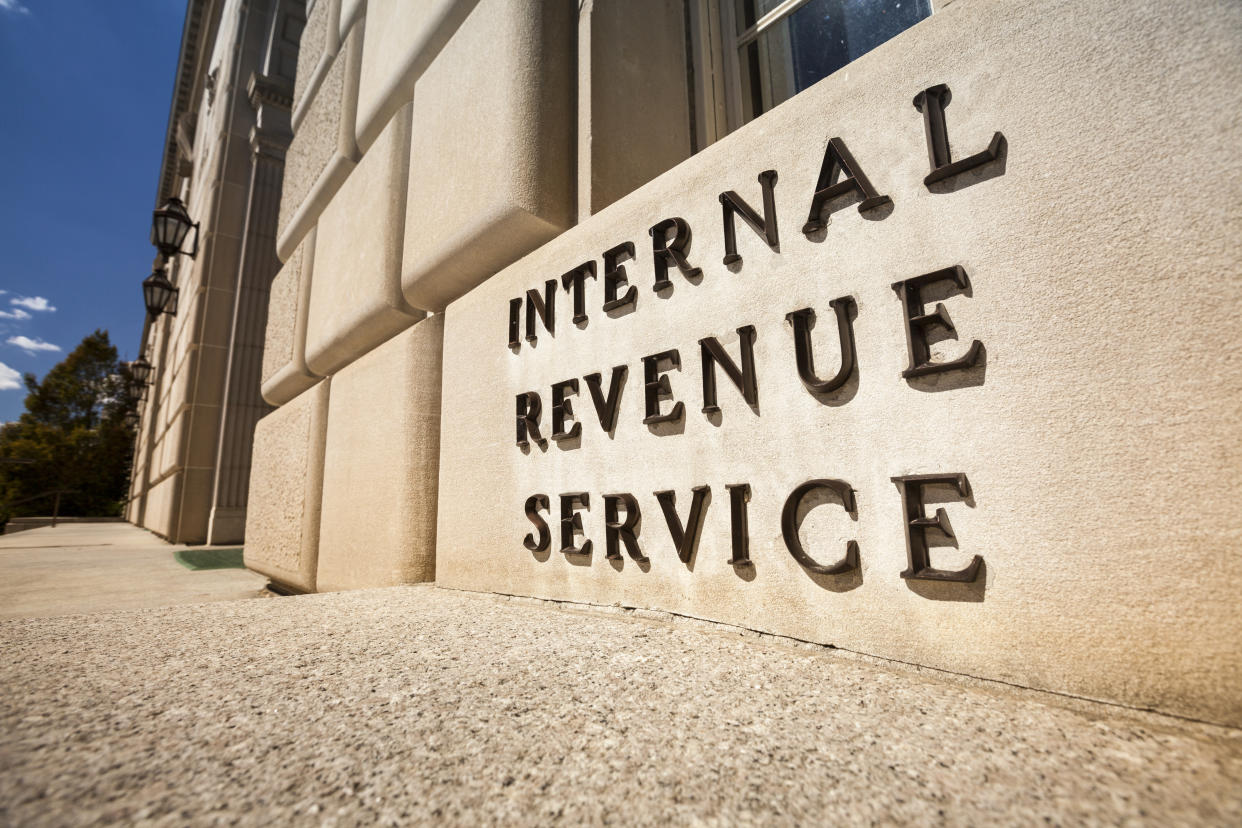The underfunded Internal Revenue Service has been relying on ancient technology to generate paper audits that target tax benefits, such as the Earned Income Tax Credit, for lower-income households.
The result: Financially vulnerable families are burdened with never-ending notices and refund delays.
"Families with low incomes are relatively easy and inexpensive to audit compared to more wealthy individuals and corporations," Joanna Ain, associate director of policy at Prosperity Now, a national nonprofit driving change towards racial economic equality, told to Yahoo Finance. "I can imagine a huge and a very scary burden for low-income families to get these notices from the IRS and and to go through that process."
Jan Lewis, a CPA and chair of the tax executive committee at American Institute of Certified Public Accountants, added: "The IRS computer systems say you didn't respond to your notice. So they send you a second notice because they think you are now avoiding them. It can go so far as to send a Notice of Intent to Levy when you've already responded."
Nearly 50% of the IRS' total audits went to families making less than $25,000 and claiming the Earned Income Tax Credit, or EITC, according to Syracuse University's Transactional Records Access Clearinghouse (TRAC). The burden of the IRS audits disproportionately falls on lower-income families, with households making less than $25,000 facing the largest audit scrutiny among other income ranges in 2022, according to data released by TRAC.
Dragged-out audits can hurt lower-income households because many depend on tax refunds to pay bills. Although the IRS recently released a new website portal to help fix issues faster, many families must amend returns during an audit, which can take up to another 16 weeks to process.
Lewis, for example, is helping a young family claim the Child Tax Credit and she can see the impact.
"They have two kids under the age of four, they are working, they are trying to do their best and it's a real hardship," the CPA said. "I've been waiting for that refund since April of 2022. We're in February of 2023. And we can't even tell them when they're going to get their refund."
But that's not all. Lewis said some taxpayers are so afraid of the IRS that they just pay the agency even if they're in the right.
"They are scared the IRS is gonna come get them so they pay the balance when they really shouldn't," Lewis said.
Targeting lower-income families
More than 97% of lower-income families who got audited in 2022 receive the audit by mail. This is because the tax agency replaced many of its face-to-face audits with letter audits as a cost cutting measure.
"The way [the IRS] audits the family is mechanical, whereas the higher-income family, when they're being audited, they (may) have lawyers involved," Ain said. "You need to spend more money on the higher-income audits than the lower-income audits."
Lower-income taxpayers also often have trouble understanding the audit letters and navigating the process.
“Correspondence audit letters fail to provide a point of contact,” Erin Collins, the National Taxpayer Advocate, wrote in her annual report to Congress. “Low-income taxpayers encounter communication barriers that hinder audit resolution, leading to increased burdens and downstream consequences for taxpayers.”
The burden of the process
But there's more.
The IRS notices don't always stop after taxpayers respond to the initial correspondence letter. The agency takes weeks or even months to process incoming mail. Taxpayers can receive a swell of threatening letters asking for a response when they have already provided the necessary information.
"[IRS notices] take on a life of its own," Lewis said, adding that the agency can also generate incorrect notices.
"[The notices] may not be right because so many of them are matching notices that the IRS is trying to match up a 1099 with what you've reported on the return," Lewis said. "Their computers can't figure that out."
Audit advice
Aside from utilizing the agency's new resources to help with audits, including calling the IRS center equipped with 4,000 more phone agents in the 2023 tax season, taxpayers have a few other recommendations from tax experts.
The first: Don't ignore an audit notice; problems will just snowball.
"A lot of times [taxpayers] have a tendency to want to sweep [notices] under the rug," said Melanie Lauridsen, AICPA's director of tax practices and ethics. "And that just complicates matters and makes the process of a notice escalate."
Taxpayers who qualify can also head to their local Volunteer Income Tax Assistance (VITA).
"VITA sites will refer a client to their closest [Low-Income Taxpayer Clinic] if they get a notice," Ain said.
And last but not least, taxpayers can get help from the National Taxpayer Advocate by submitting requests for assistance.
Rebecca is a reporter for Yahoo Finance and previously worked as an investment tax certified public accountant (CPA).
Click here for the latest personal finance news to help you with investing, paying off debt, buying a home, retirement, and more
Read the latest financial and business news from Yahoo Finance
Source: Read Full Article

